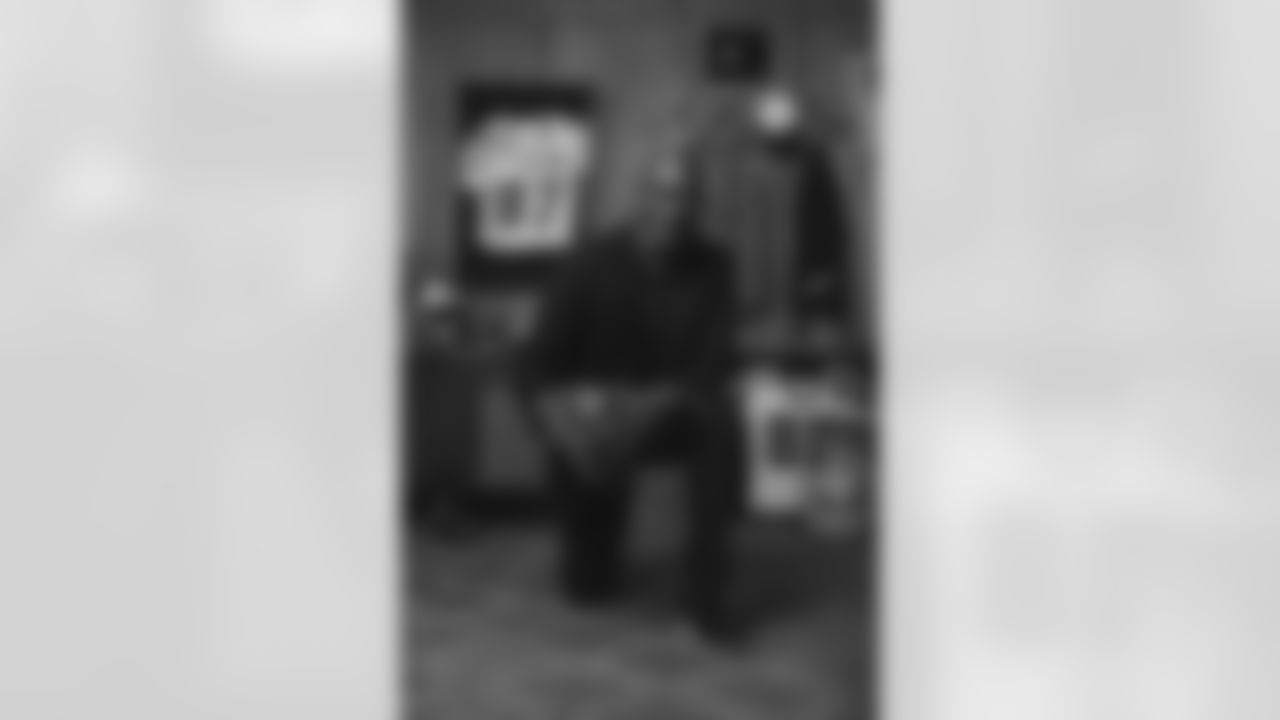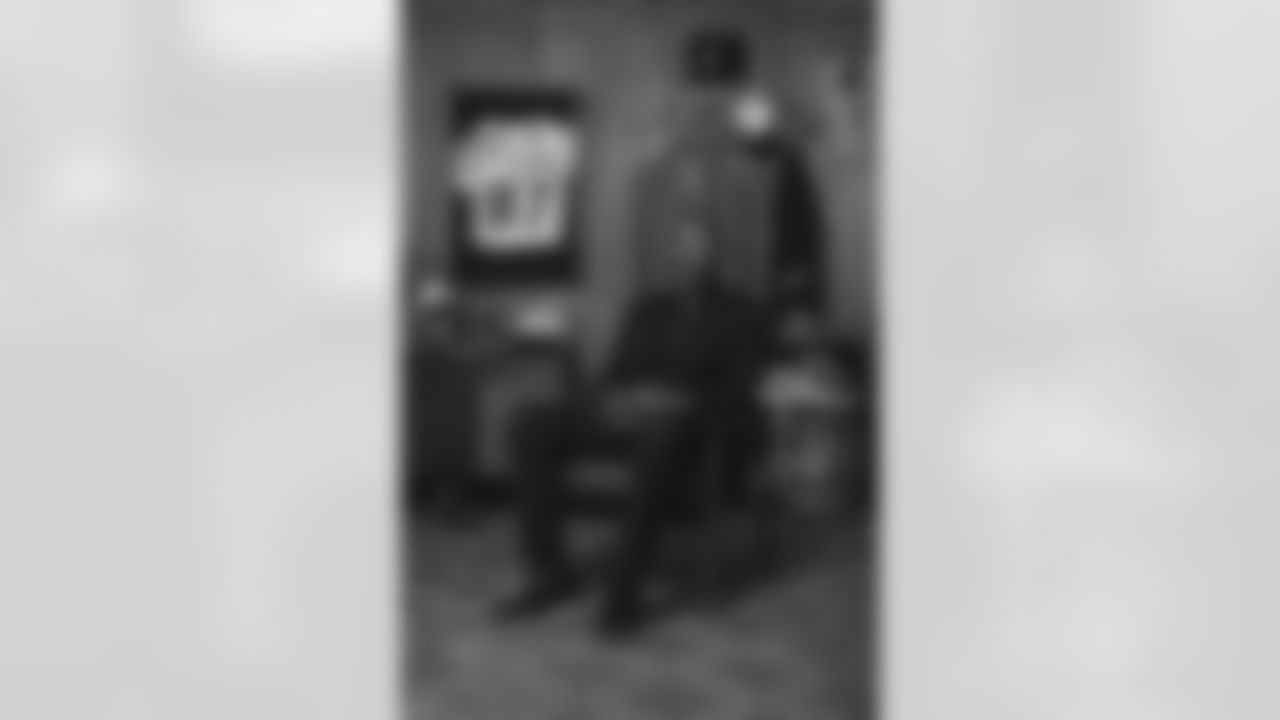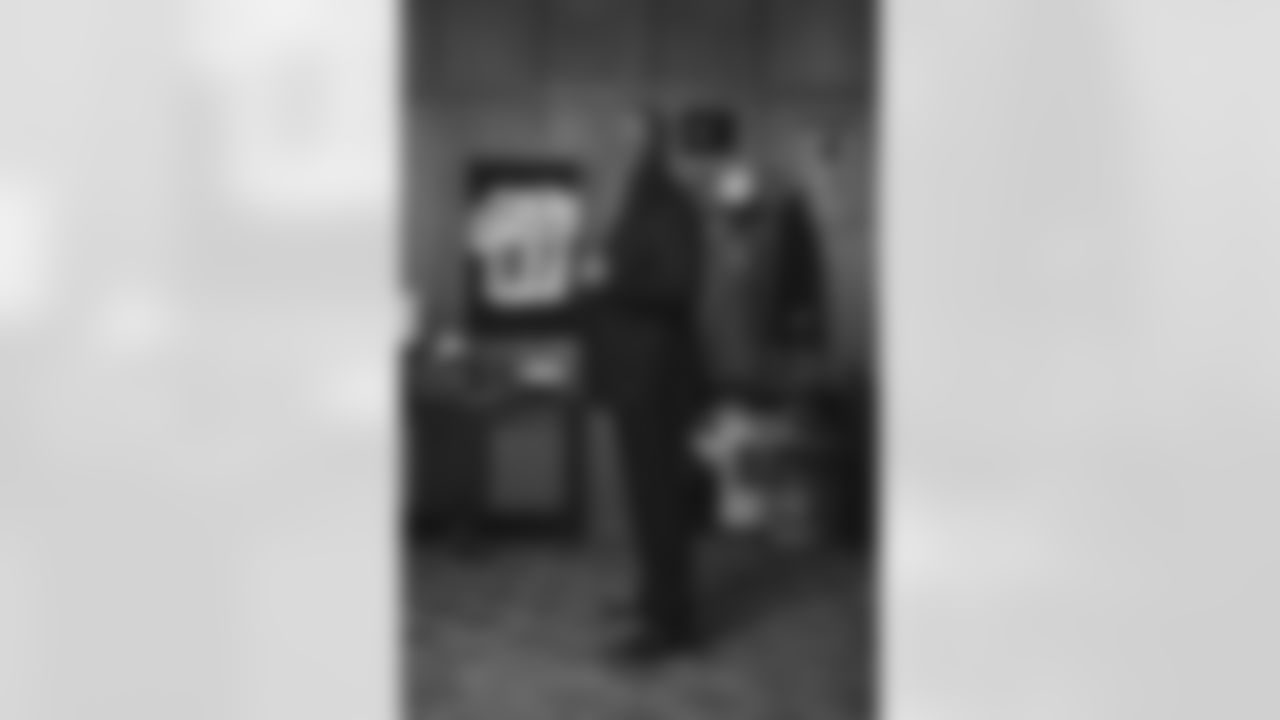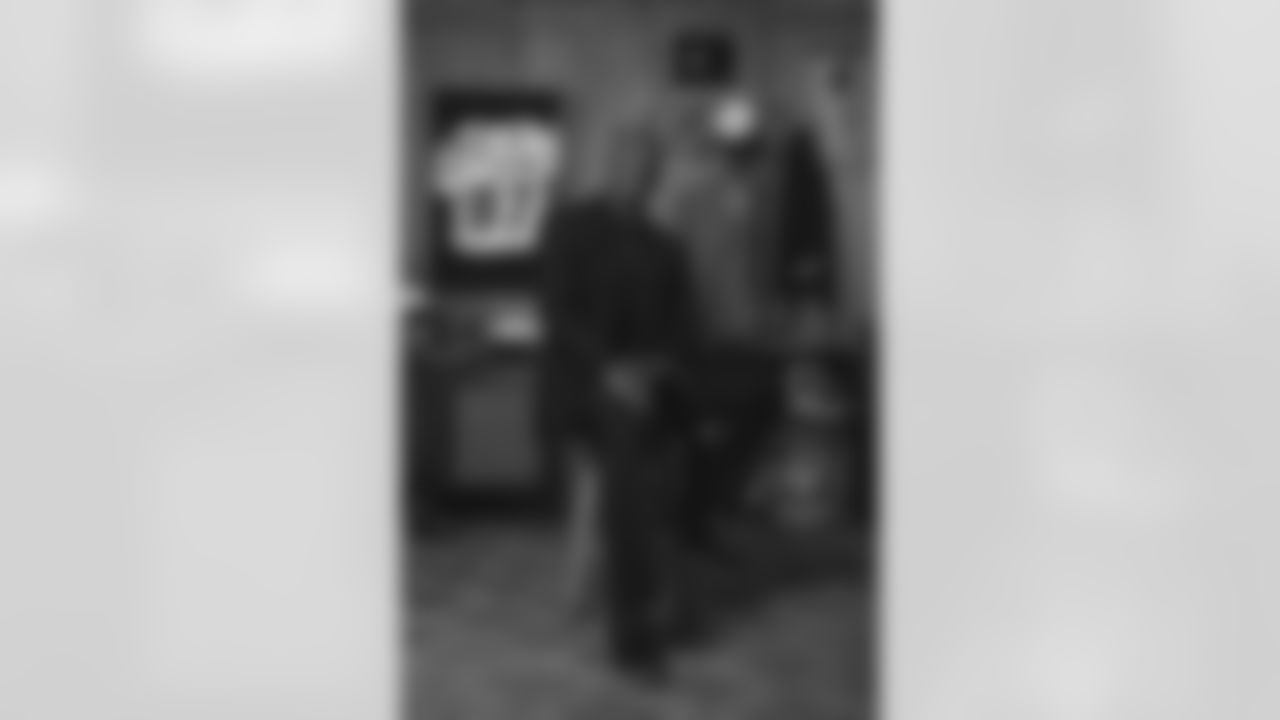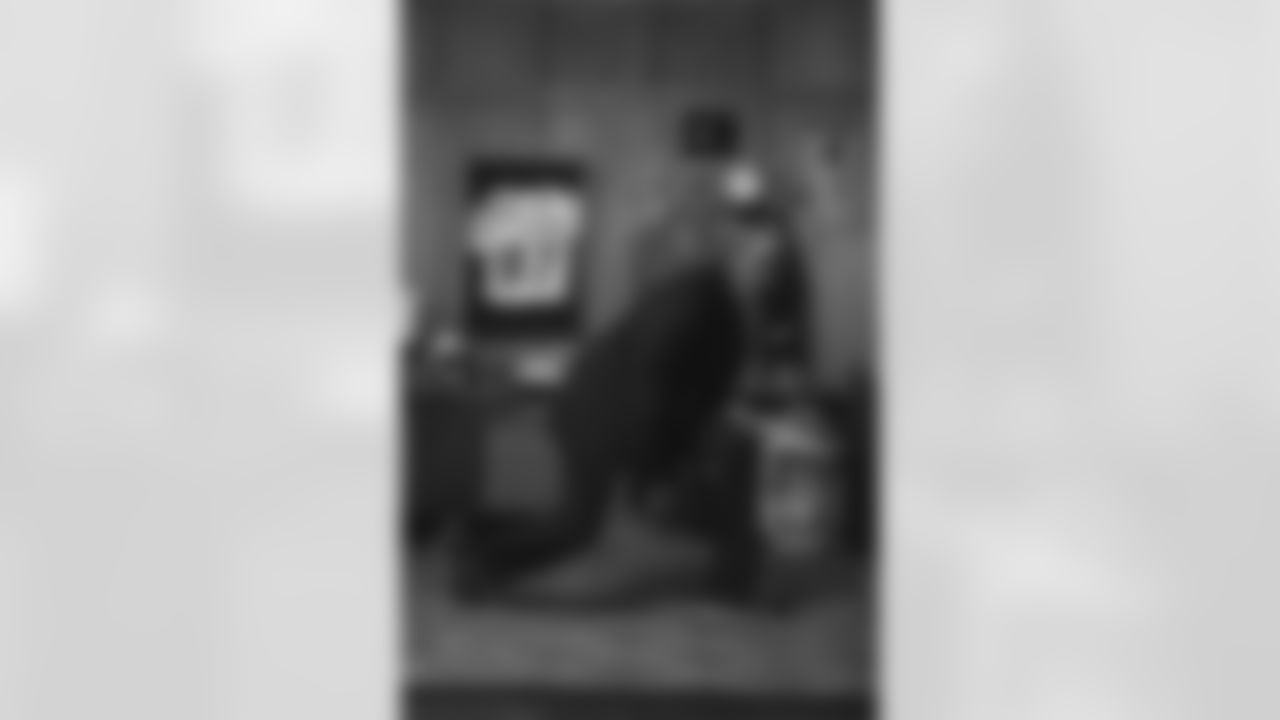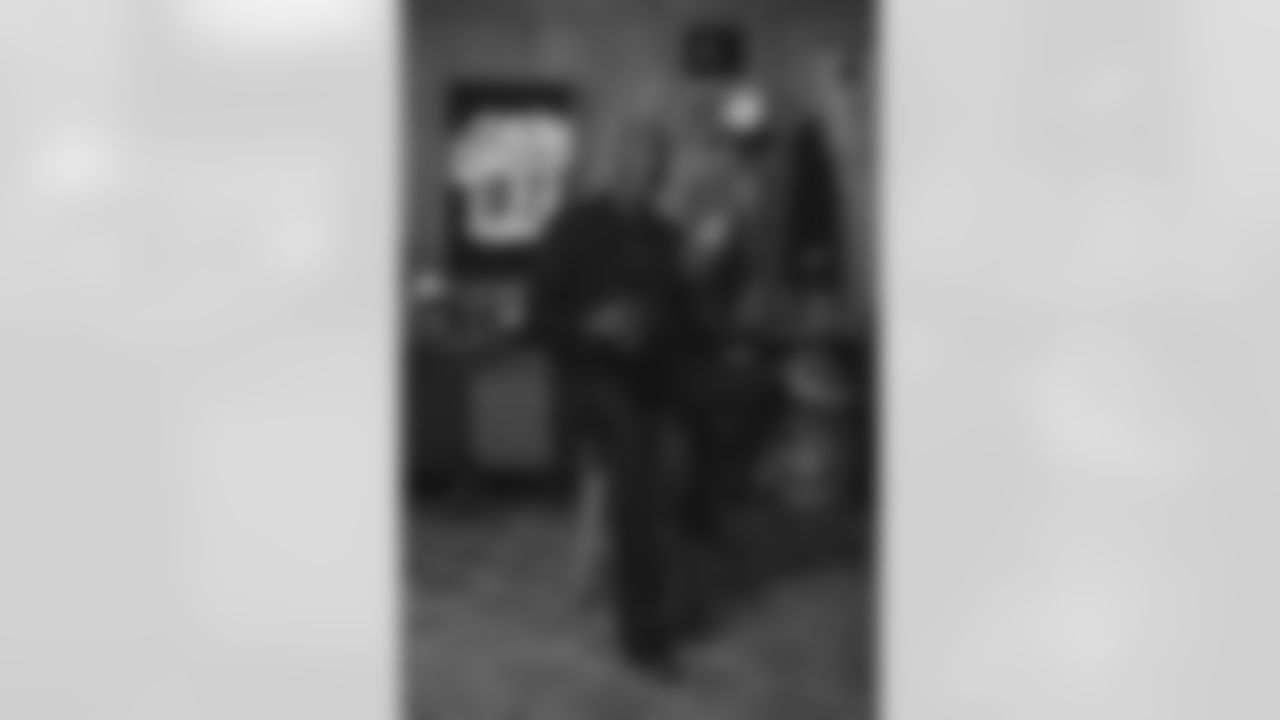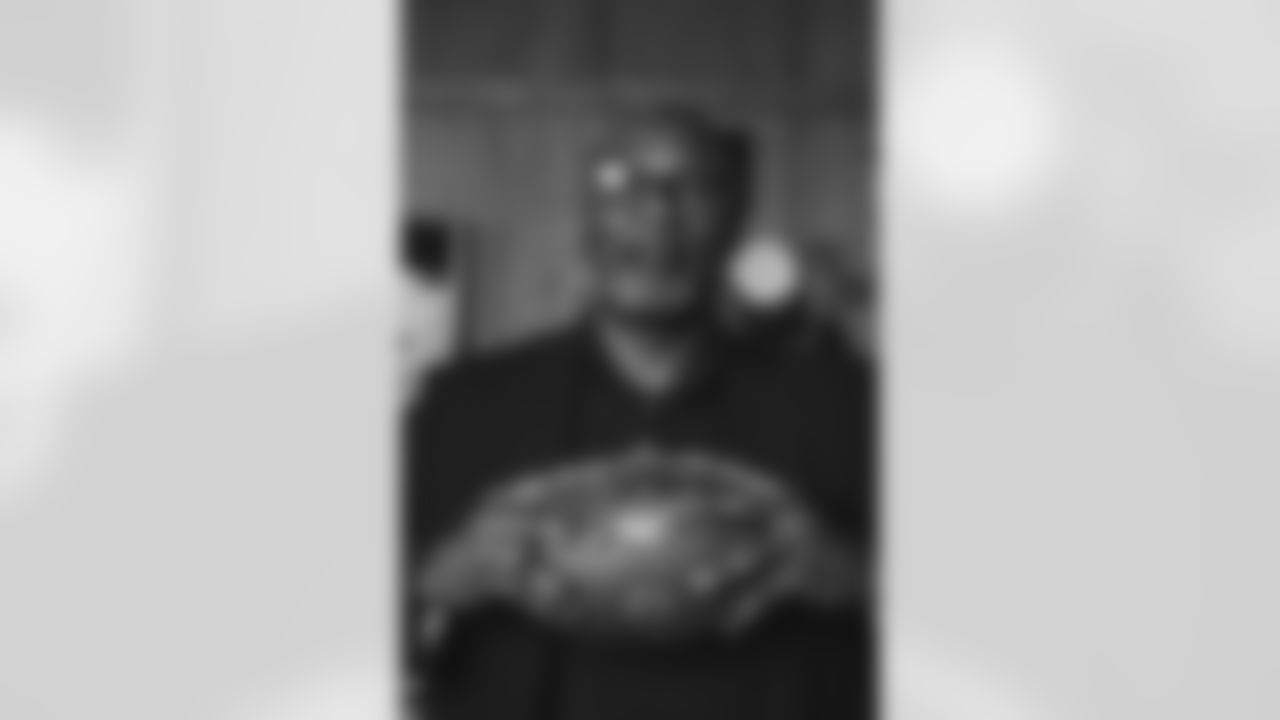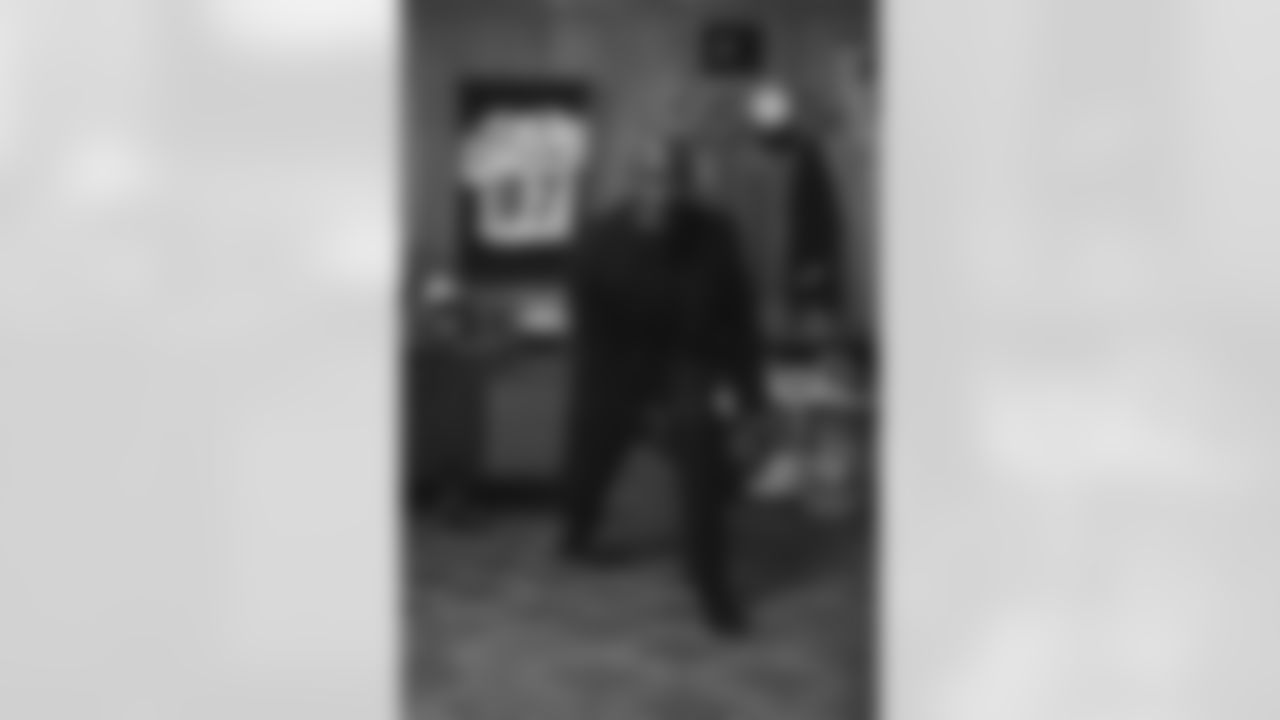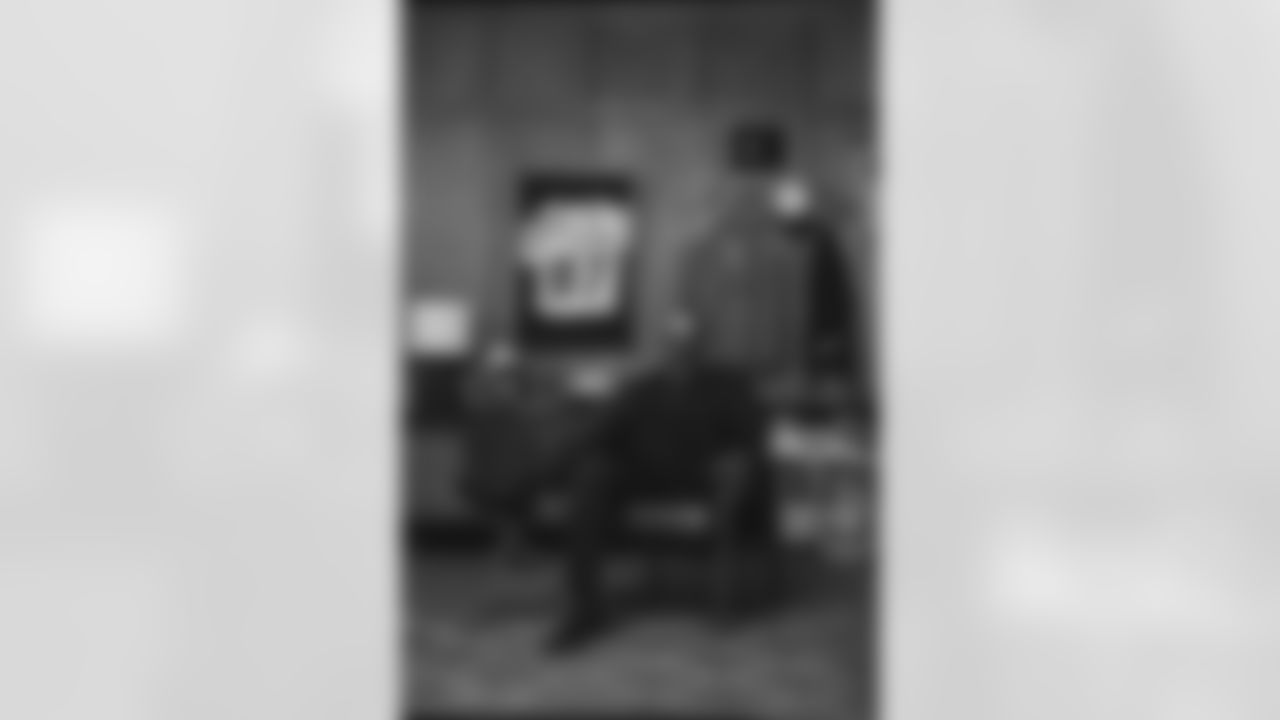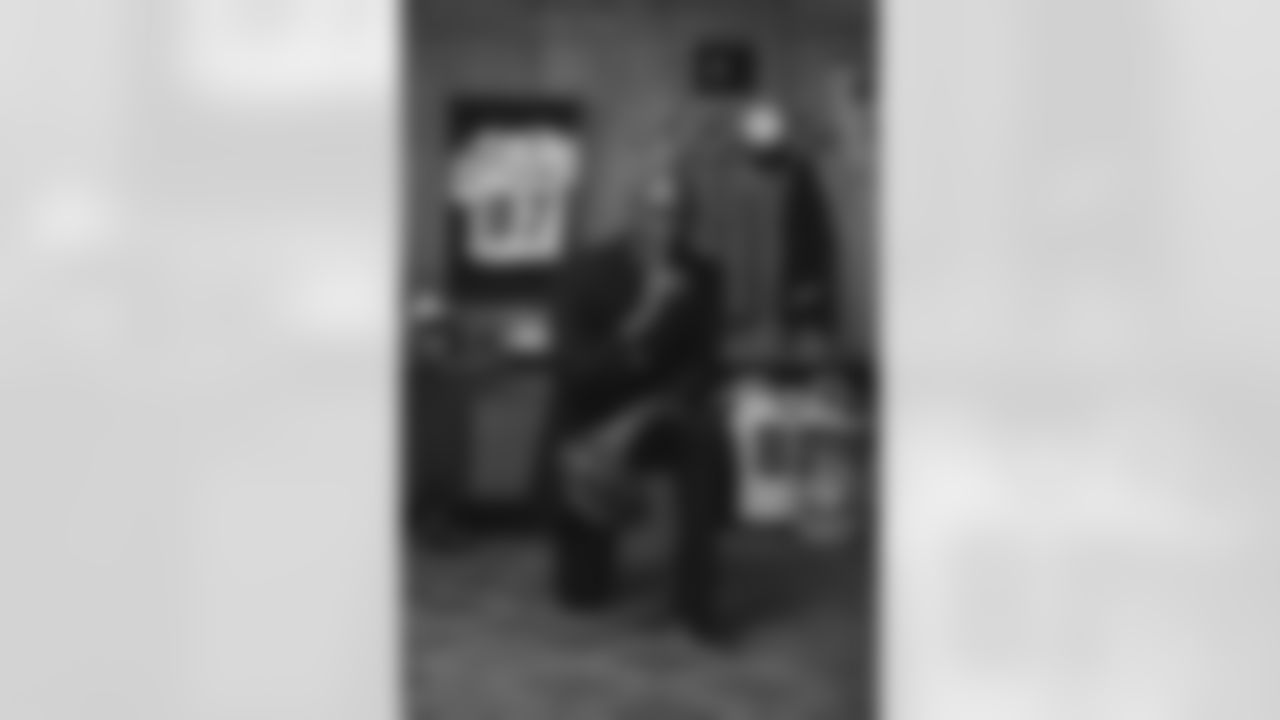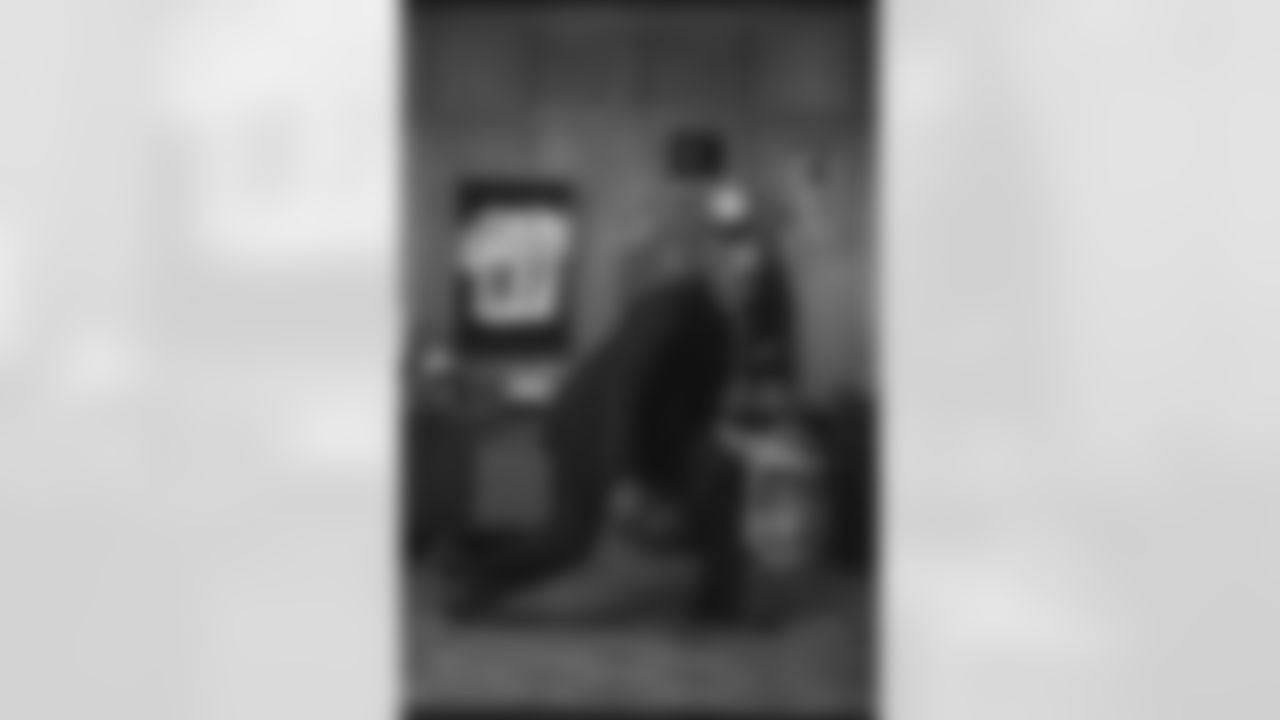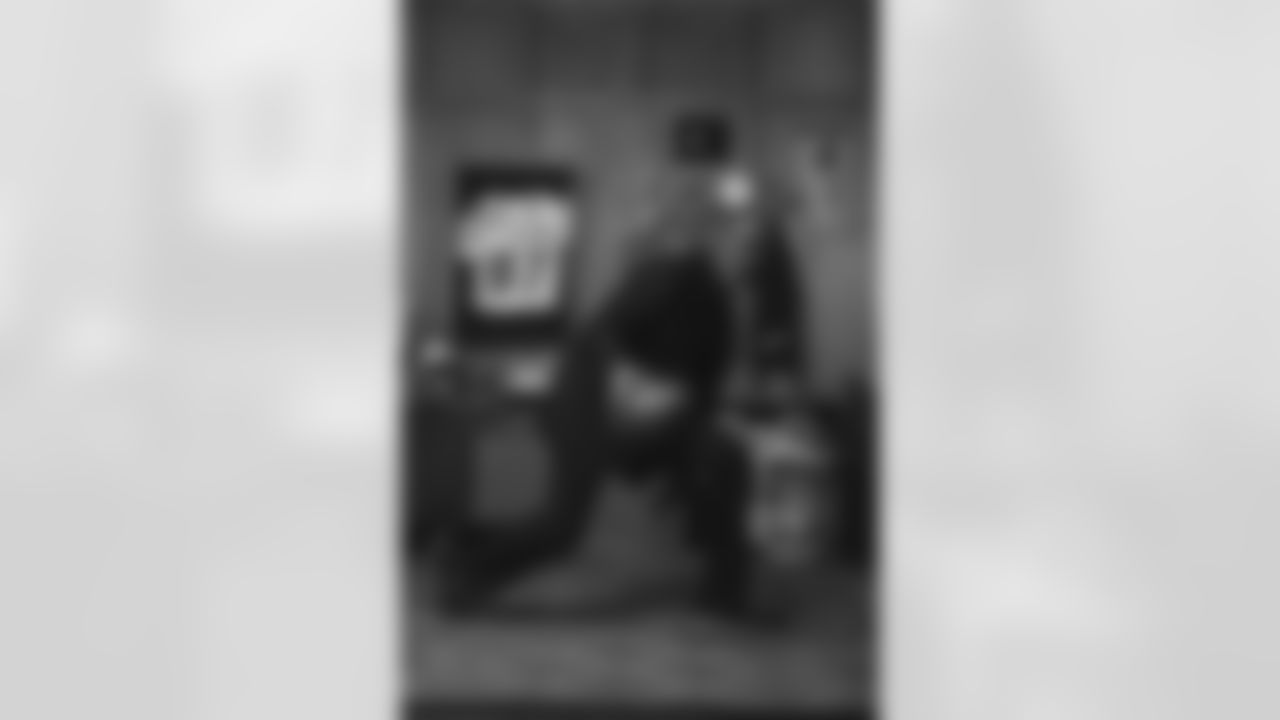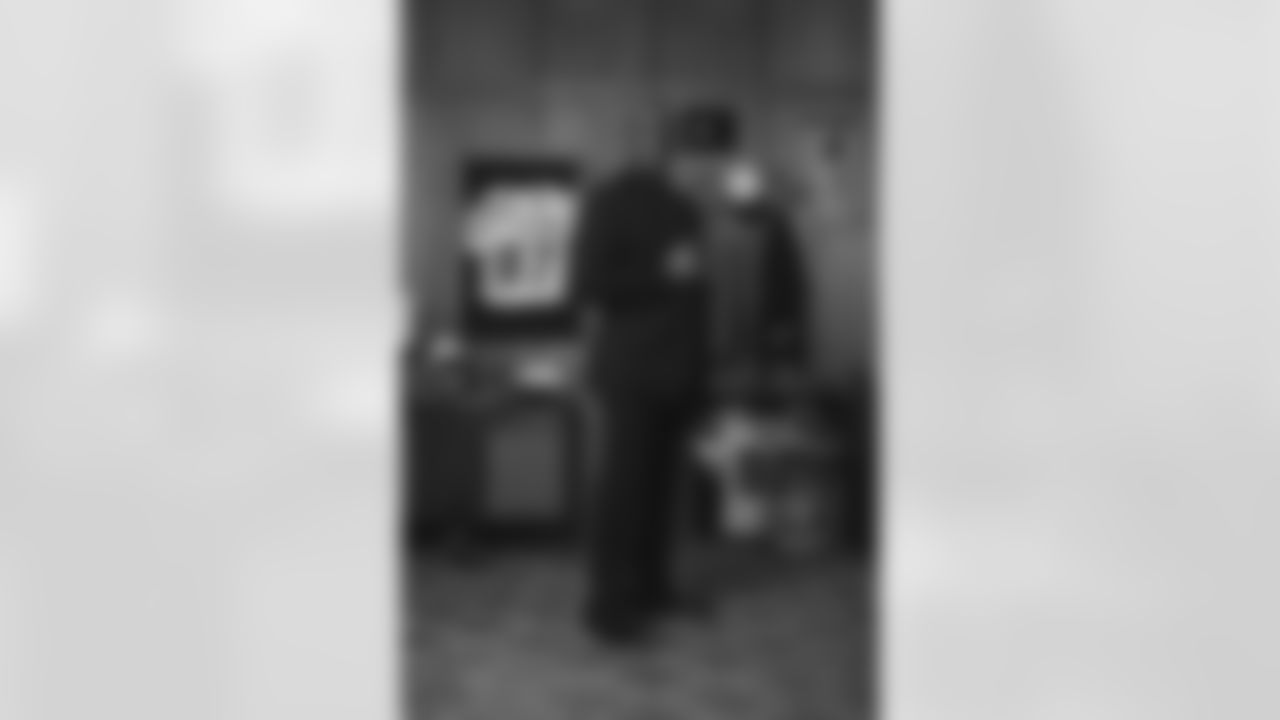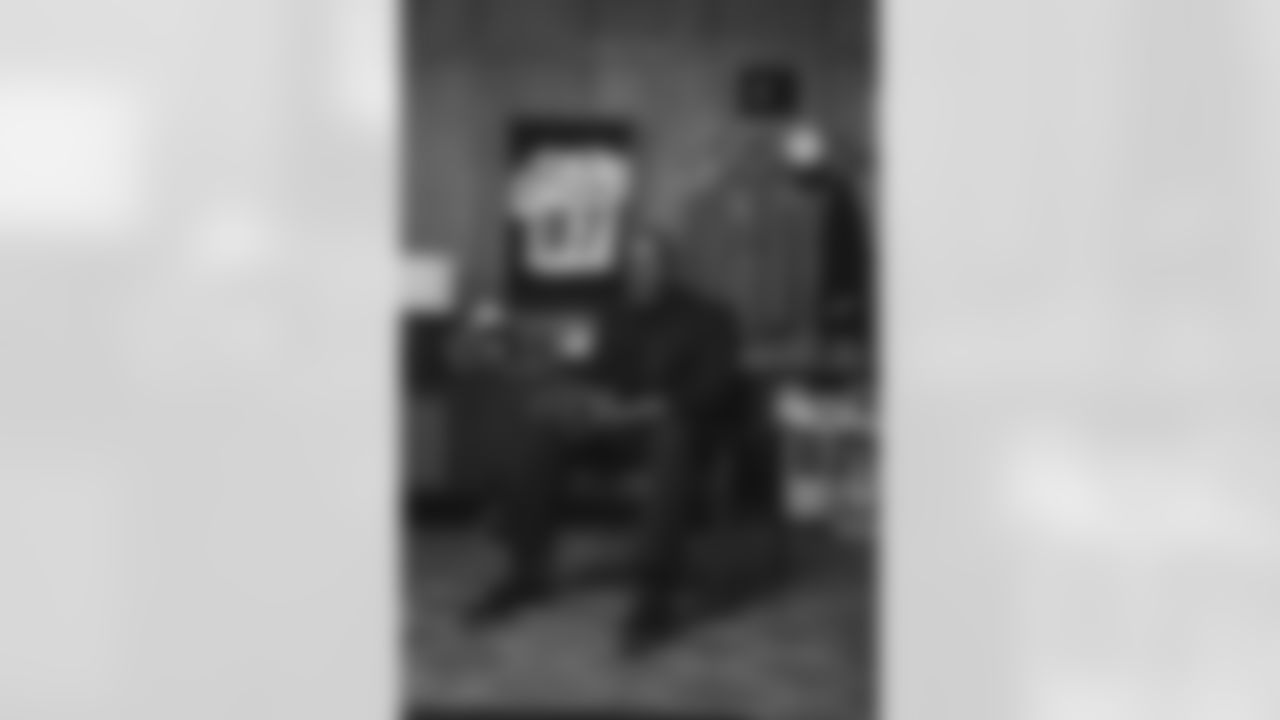CHARLOTTE — Most teams would love to have one wide receiver in franchise history who could carry a game or an entire season by himself, especially if they drafted him themselves and developed him into a star.
Muhsin Muhammad was that guy, the first real star wideout — with all that entails — in Panthers franchise history, the kind of guy who could break open a game at any time and make headlines as easily as he made plays.
The fact the Panthers would eventually have another one of those is interesting, too, especially since Muhammad and Steve Smith's chapters overlapped, and each became part of the other's story while doing enough to write a book about their own work.
They're receivers, so right off the bat, you know it's not always going to be easy. But it's also fascinating, and because they're receivers, you know you have to watch because, at any moment, something could be done — or said — that you'll remember forever.
"It was dynamic. It was complicated. It was special, though," Muhammad said with a laugh when asked about his protege, who would also become his competitor and eventually his close, close friend.
"There ain't no Smitty without Moose," Smith said simply, as the two had an emotional conversation on Smith's podcast this offseason.
But it's important to remember that long before Smith would come along and be that guy, Muhammad was already here and already proving that he was that guy.
Muhammad finished his 14-year NFL career with 860 receptions for 11,438 yards and 62 touchdowns.
To put that into context, he's 27th all-time in receptions and 33rd in receiving yards in NFL history. If you're looking for receivers who made more of an impact on the game than him, it's a pretty short list, and most of them are in the Hall of Fame.
And before you get to the other one, you have to recognize how good the first one was.
"He was a true number one receiver," quarterback Jake Delhomme said of Muhammad. "There's no doubt about that. He was big, he was fast, he could do it all. And he blocked, and not a lot of receivers could or would the way he did.
"Muhsin was different, man. He definitely, definitely was not a two."
Panthers vice president of player personnel Adrian Wilson, a five-time Pro Bowl safety for the Cardinals, saw Muhammad through his prime and recalled the impact he made in every phase of the game.
"I just remember the size, he was such an efficient route-runner, but he was complete," Wilson said, his scouting report dripping with respect. "They used him in the run game a lot, just in terms of coming down, blocking on safeties, and those sorts of things. So, I remember the physicality.
"As a younger player, seeing a player like that, as big as he was, I think that was probably the first time I've actually went up against like a guy that was the same size as I was. It was definitely different."
That's what the Panthers were always hoping for from the day he walked in the door.

Muhammad was drafted in the second round of the 1996 NFL Draft, the Panthers' second season, when they'd shock the football world by making the NFC Championship Game. They were looking for offensive impact in that second draft, after they built the expansion team around a bunch of veterans (including now-head coach Frank Reich) and a defense as good as any in the league. So after taking home-run hitting Michigan running back Tshimanga Biakabutuka in the first round, they followed up with the kind of game-breaking receiver quarterback Kerry Collins needed to grow as a passer.
They got more than they could have anticipated out of veterans Mark Carrier and Willie Green in 1995, but they needed somebody who could knock the top out of a defense. And even as a rookie, Muhammad did that, averaging 16.3 yards per reception in a limited role. It was immediately obvious that he had that big-play potential. Hall of Fame linebacker Sam Mills got one look at the rookie and said, "That's a Moose that runs like a deer." But it took a couple of years and some lessons on and off the field to see it come to fruition.
Asked recently when he imagined he'd be in this position, to be selected for the Panthers Hall of Honor, Muhammad smiled and gave his best shot at humility.
"I just wanted to make the team," he said with a laugh. "I wanted to play one contract."
That's the Muhammad that comes with age and perspective. He clearly believed in his ability to do more than that. Always did.
And he would. But before he'd become a guy who would teach lessons, he had to learn some.
Since he was late signing his rookie deal, there was some catching up to do in that first camp.
"I remember, after signing my contract, they took me straight out to the practice field and almost killed me," Muhammad said. "Willie Green made me take every rep in practice, like 'Rookie, you showed up late, and we've been carrying the load for you, now you're gonna carry the load for us today.' And so I took like every rep. First and second string reps and all, and I just remember cramping up like nobody's business after that practice."
Of course, the practice was just part of the work day, and when Muhammad went dragging inside, he saw veteran wideout and special teamer Dwight Stone going through his playbook with an array of markers, color-coding the specific assignments for each position, digging into the offense with precision.
"I remember after I cramped up in that training camp practice, I remember going to the meeting that evening, and I was dog tired," Muhammad said. "And Dwight Stone had his playbook out. And then he had all these markers next to it, right? And he took meticulous notes. And that's where I really learned how to take notes. Stoney would color every position. I was like, 'What the hell are you doing?' He's like, nah, man. He said, number one, when you write something down, you remember it 10 times more. I said, OK. And he said, these meetings are real boring, and it helps me stay engaged. I said, OK, that makes sense, too.
"Dwight was a special teams guy, but they'd throw him in at the X too, and he had to know all this stuff. And as the old saying goes, the more you can do, the more valuable you are."
That lesson stuck, and he'd be able to share it later.
Muhammad also had to learn about his own body. He battled hamstring problems and other injuries his first two years in the league, struggling to stay on the field. A more studied approach to the offseason led to a breakout year in 1998 when he caught 68 passes for 941 yards.
"I knew I had to prepare myself differently," he said. "I knew after those first couple of years, I was going to do everything I could to keep myself 100 percent healthy."
Things were evolving around him as well. After the 1998 season, the Panthers made a coaching change, bringing in George Seifert, who walked in the door with the highest winning percentage for a coach in league history and two Super Bowls with the 49ers on his resume. He brought the West Coast offense with him, quarterback Steve Beuerlein flourished, and it was good for Muhammad as well. He caught 96 passes in 1999 and had 102 the following year, even though things weren't trending in the right direction for the team.
But Muhammad was shining, and he knew it, and the confidence of being a true playmaker was coming through. The Panthers went into that offseason with a 52-9 loss at Oakland on Christmas Eve (an omen for what was to come in 2001), but Muhammad caught 10 passes for 114 yards that day, capping his brilliant statistical season. "Amongst the total disappointment and all the ashes and rubble, I guess you could say a flower kind of grew today," he said after that game.
While he was blossoming, things around him were beginning to wilt. The 2001 season was a turning point for the Panthers, with perhaps the best draft in franchise history but their worst year on the field. Their first three picks that year would all become stars, with Dan Morgan, Kris Jenkins, and Smith playing key roles in the Super Bowl run two years later. But before that, they had to go through the pain of a 1-15 season, and Muhammad grew frustrated. He was an unquestioned lead actor by that point, but during a dry spell (two catches each in three straight games as they slouched to 1-6), he made a statement. The following week, he taped over the nameplate of his practice jersey and wrote D-COY in big block letters with a marker, making it clear he wasn't happy with his usage. He wasn't bashful about letting people see it, either, hanging it in his locker while reporters gathered to interview him.
Perhaps you've heard. Receivers are different. And going into the next year, things took another big turn as Smith continued to ascend. He had a big personality of his own, giving the Panthers a pair of big-play receivers who needed to eat, on a team that wasn't exactly designed around an explosive passing game.
Make no mistake; the new John Fox Panthers were going to try to win with defense and the run. The passing game was almost an afterthought, with caretaker quarterback Rodney Peete starting in 2002 before Delhomme arrived for the Super Bowl run the following year.
"Let's be honest," Delhomme said. "For those two guys to do what they did, with a defensive-minded coach and the philosophy we had, that tells you how special they were."
And their teammates also realized they were pushing each other.
Morgan, now the Panthers' assistant general manager, looks back on it now with a personnel man's perspective, realizing what he was seeing every day.
"It was fun watching it because they're both, like, ultra-competitors; they were blue competitors," Morgan said, using the scouting color-code shorthand for the elite. "You knew every day they were going to come out and be the same guy. You'd see them compete like they had like a friendly competition with each other. They wanted to out-do each other, and they could never tell me any differently.
"And I think that's what made them great, right? Both of them. I think they pushed each other and made each other better."
Of course, when there are only so many passes to go around, there are only so many opportunities for playmakers to make plays. So that pushing also came with a little tension. When you start talking about receivers, there's only so much oxygen in the room. And Muhammad and Smith both breathed deeply.
For Muhammad, born May 5, 1973, and Smith, born May 12, 1979, there was always a competition to be the guy.
"You know, I will say this, Steve and I had a very dynamic relationship, right?" Muhammad said. "It was... it was very complicated. You know, because there was a sense of sort of admiration and competitiveness. There was a sense of being a good teammate but also wanting your individual accomplishments as well. And so when you're in the same room with a guy whose birthday is a week away from you, you have a couple of Taurus, the bulls. You know, you can imagine the head-butting that could potentially go on along with congratulating each other's successes, right?
"And I think when you think about the perfect kind of storm, it's like this competitive energy that you're going to out-do the other person, but it's all for the collective good."

Now, Muhammad calls it a "very special relationship." But they both acknowledge it took some time.
"Yeah, two alpha males, two guys that were trying to establish who they were," Smith said. "They had drafted other guys, and he felt they were trying to replace him. And then when I came in, he was like, man, just another guy trying to replace me. And I was not aware of that. And so that really, as now we've gotten older, we saw that we weren't adversaries like we thought then.
"He pushed me at times. He was there to help me, and then there were other times he just allowed me to sometimes nick myself shaving, right? He allowed me to work where I was working. And I think overall, it was a relationship that I needed at the time, and he needed. We just were unaware of it and kind of fighting against what the universe actually was putting together."
The Panthers brought in veteran wideout Ricky Proehl prior to the 2003 season, giving him ringside seats for another pair of dynamic wideouts. Proehl was the third receiver for the Rams during the Isaac Bruce-Torry Holt "Greatest Show On Turf" days, so he was no stranger to how this thing worked.
But this wasn't the Rams' offense, so keeping everyone happy took some counseling. Proehl recalled the second Buccaneers game of that season, which included him going deep for a 66-yard touchdown that triggered a unique reaction from Smith.
"I scored, and we're passing each other on the sidelines, and he's pissed," Proehl said with a laugh. "And I said, but we're going to need you. If we don't make plays, they just double you. So you want us to make plays. And sure enough, he catches the game-winner at the end of the game. And so for me, I was kind of the proud dad, like, see, what did I tell you?
"But there was some kind of balancing the both of them because I think there was some friction between Steve and Moose. Not Moose with Steve but more Steve with Moose. And I could kind of be that common ground for Steve, like you don't know this now, but you're blessed that we have Moose on the other side. He gets it now."
Eventually, they both learned the value of the other. But it took time.
"I think Smitty has an appreciation for what he learned from me in order to get there, right?" Muhammad said. "I think there's a balance there. And, you know, I mean, the thing about sacrificing personal gains for the greater good is that there's a greater good, and there's this team success that follows that.
"I think we both have our mark that we made on this franchise and this city."

They certainly did that in 2003, two star receivers leading a run-first offense to a Super Bowl. Smith was the one becoming the bigger name that year, but Muhammad made the big play — an 85-yard touchdown that remains the longest pass in Super Bowl history. With hindsight, it served as a reminder that Muhammad was more than capable of being the guy. Between that and his flair for the dramatic — including his quieting the crowd celebration in Philadelphia that became an iconic Sports Illustrated cover — Muhammad cemented his reputation as a receiver who could be the one you turn to.
The next year proved it, with another twist which more layers of complexity to the story.
Smith broke his ankle in the opener against the Packers, leaving the offense in a mess. Their running backs were all hurt, and there was really nowhere else to turn.
"We just got to a point where we had to chuck the s--- out of the ball," Delhomme said.
Fortunately, Muhammad was there to catch it.
Even as the season was going down the drain, Muhammad was rising again, with 93 catches for a career-high 1,405 yards and 16 touchdowns.
"You want to know what kind of receiver he was on his own? Just extrapolate what he did in '04," Delhomme said. "He was all we had, and he still got it done at a high level. Everybody knew what was coming, and he still did it."
In a sense, that season also pushed Muhammad out the door. He was looking for another new contract, but as then-general manager Marty Hurney was trying to figure out who to pay next on a team full of talent, the idea of lavishing a new deal on a second receiver didn't seem prudent. There was a $10 million option bonus due to Muhammad the following year, and they released him rather than paying what was considered an extravagant amount.
Muhammad's a proud man, and it clearly still stings a little to have been cut (though it was obviously a financial rather than a performance decision).
"Maybe I priced myself out of the market," Muhammad said. "I went into the last year of my contract, and most people like that job security, but I just rolled the dice. So go out and play, you know, and let the chips fall where they may.
"I remember getting challenged by Marty in camp saying, if you want a contract, go play for it. I said, 'OK, I'm gonna make you pay for it.'"
After his release, he'd go to Chicago for his big payday, though he never matched the same kind of individual success there.
The final turn in Muhammad's story was being able to come back in 2008, not just as the new Ricky Proehl, but as a major contributor to one of the league's top offenses. At 35 years old, he topped anything he did with the Bears by catching 65 passes for 923 yards and six touchdowns.
It was still a running team, and Smith was the unquestioned focal point of the passing game, but Muhammad was a key part of it all. That meant as much as being able to come home.
"I had a sense of relief," he said. "I was in a different place. I played 12 years in the NFL. I really thought I was coming here in a different role as a mentor, right? Not as a player. I was coming here as a clipboard receiver. They had DJ Hackett; they had Dwayne Jarrett. They had all these guys that were supposed to be the next coming of Moose.
"And I wanted to beat them all out in training camp, right?"
He was always good, he always made plays, and he always prepared himself. But when he came back in 2008, his teammates saw something different.
"When he came back, one of the things that I loved about Muhsin was his work," former linebacker Thomas Davis said. "You'd see him in the weight room, there wasn't anybody out-working him, and that's why he was able to sustain so long and have such a long, productive career. He was able to do things at his age that most guys weren't able to do physically."
It took time for Muhammad to get there.
He was the young guy who had to learn to work, had to learn to take care of his body. Then he had to learn to be a star. Then he had to learn to teach one. Then they both had to learn to share. Then he went away. Then he came back to teach, and ended up proving he could still play.
It was a whole journey, one he can appreciate more fully now, more than he was able to as it was happening.
"I'm a very competitive person. And I'm also an unselfish person," Muhammad said, reflecting on the span of his career. "And so you know, when you think about individual records and individual accomplishments, are they more important than the team's accomplishments? I think, at a certain point in my career, I was ready to sacrifice personal accomplishments. But the question of can he do it was never a question. It was, what is he willing to do for the greater good of the whole team?
"And if Smitty goes to the Hall of Fame because of his personal accomplishments, I own a piece of that success. Jordan Gross owns a piece of it, Jake Delhomme owns a piece of that success, all his teammates, right? And vice-versa. If I go into the Hall of Honor, then they own a piece of that as well. Because ours is the ultimate team sport, right?"
And then that glimmer in his eye, that pride that comes along with being a receiver, a guy that's going to make plays or headlines at any given moment.
"But I think if people were wondering does Steve become a number one and Moose goes because he wasn't good enough? Well, I mean, go look at 2004. I let the film speak for itself," Muhammad said. "I don't have to say anything. And when you look at what I did for the team in terms of blocking, and you name it, playing different positions, mentoring guys on the team, all that kind of stuff. It just speaks for itself."
Muhammad was never afraid to speak for himself. And his film backed up his words at every turn.
Make no mistake, Muhsin Muhammad was a team player. He was also a star, with all that entails. Most teams are lucky to ever have one. And when he crossed paths with another one, it created something special, and both of them — and the team — were better for it happening.
View photos of former wide receiver, Muhsin Muhammad at his Hall of Honor photo shoot.


